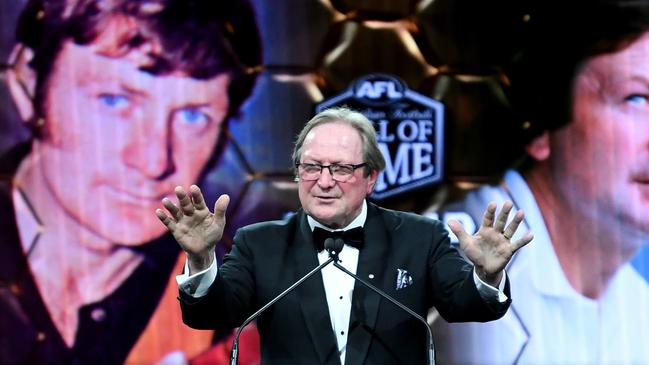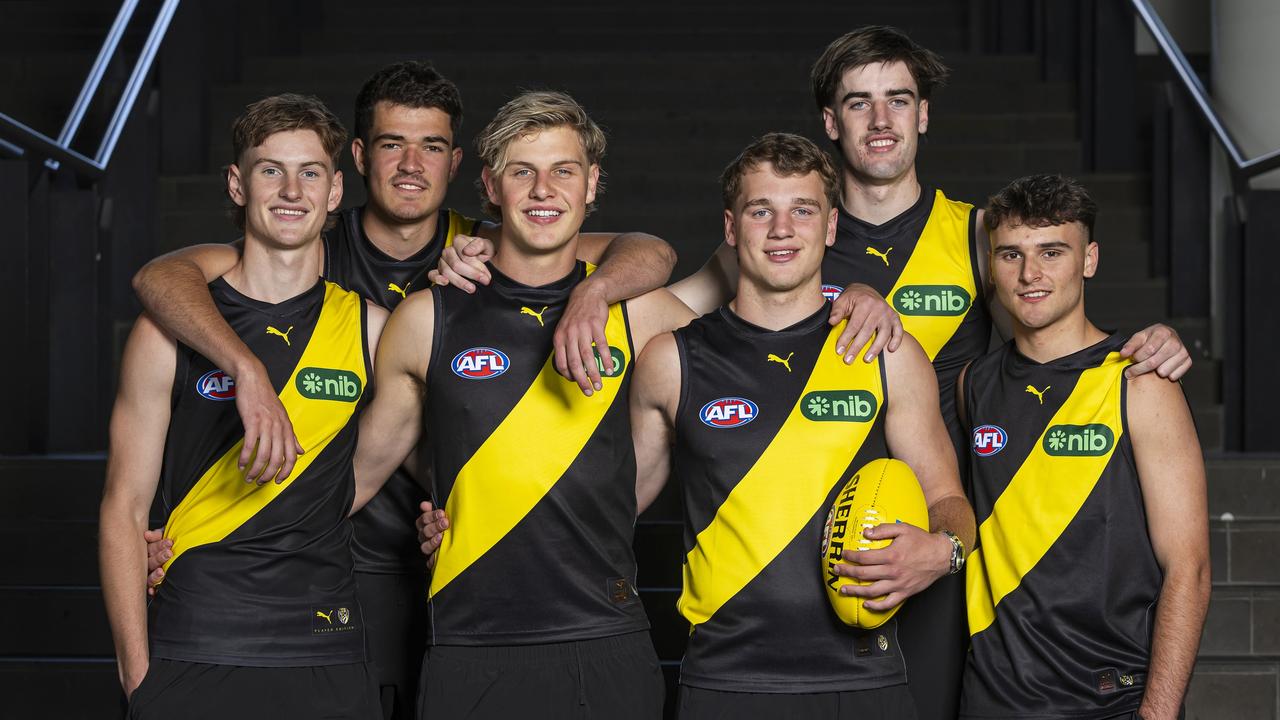It’s official, Sheedy made a footy Legend
Kevin Sheedy enjoyed legendary status well before his official elevation by the Australian Football Hall of Fame.

Kevin Sheedy enjoyed legendary status well before his official elevation at the Australian Football Hall of Fame dinner in Melbourne last night.
Given the totality of his achievements as a footballer, coach and ambassador of the indigenous code, perhaps the only surprise is that he did not carry official Legend status earlier.
On one of Australian football’s great occasions, Sheedy was awarded the code’s ultimate accolade, though he was not alone in being honoured.
Six other former players from Western Australia and Victoria entered the Hall of Fame last night. Four-time premiership Blue Wayne “the Dominator” Johnston, a Carlton captain, was among those elevated into elite company. Also honoured were West Australians Bernie Naylor, a champion with South Fremantle just after World War II, and former West Perth captain Mel Whinnen.
Terry Wallace, a star centreman with Hawthorn who also played with Richmond and the Bulldogs before coaching the latter two clubs, received an induction.
So, too, six-time All Australian Matthew Scarlett, a three-time premiership defender with Geelong who is considered one of the greatest full-backs to play the game.
Former Melbourne captain David Neitz, a versatile and courageous key position player, was the other inductee.
But the night’s main honouree was Sheedy, who took centre stage at Crown’s Palladium Room in Melbourne just as he has so often over an involvement with the VFL and AFL that dates back to his debut with the Tigers in 1967.
Dubbed “the bloody back-pocket plumber” by revered coach Tommy Hafey, Sheedy was never the most skilful player at Richmond. But he was bloody good. As well as winning a best-and-fairest in 1976, Sheedy captained the Tigers for a season in 1978 and was a member of three Richmond premierships, including the back-to-back successes in 1973 and ’74.
It was as a coach at Essendon and later with the Greater Western Sydney, where he was appointed the front man of the AFL’s most ambitious expansion project, that Sheedy became a legend.
As Sheedy walked to the stage to accept the accolade last night, the room waved him up swinging Essendon scarves around his head, just as he once did against the Eagles.
Sheedy told the packed audience he was most proud of being “able to give young people the belief that they are going to be good people in a sport”.
The 70-year-old coached the Bombers to 386 wins from 634 games between 1981 and 2007, a reign that garnered four premierships. A champion of indigenous players and people, Sheedy was charismatic yet mercurial as a coach, a salesman but the hardest-nosed of competitors. If an advantage could be had, he would try anything, with a classic example occurring at Windy Hill in 1981 when he tied the windsock down in a bid to disguise the way the wind was blowing.
He loved stirring the pot, be it the trademark swirling of his jumper, or the “marshmallow” war with neighbouring North Melbourne executives. And his players loved him, in part because he could turn the most unfashionable of footballers into those capable of producing important roles on the games’ biggest stage.
An example of his brilliance came in the 1984 grand final against arch-rivals Hawthorn, with Sheedy producing a string of moves late in the match that allowed the Bombers to surge to victory. A second premiership arrived a year later.
Then, with a youthful mob of talents including Gavin Wanganeen and James Hird, he led the team known as the “Baby Bombers” to another success in 1993.
The champion side of 2000, which featured several of those 1993 stars, rates among the finest to play, winning all bar one match in an astonishing season.
To the lament of Essendon fans everywhere, they were only able to garner one flag in a reign where they had claims to being the best side between 1999 and 2001.
With the AFL looking to establish itself in the rugby league dominated territory in western Sydney, it opted for Sheedy as the GWS Giants’ inaugural coach.
With an inexperienced side, Sheedy was never going to enjoy the same success that he did at Richmond and Essendon.
But such was his reputation, Sheedy was the ideal man to take the role as inaugural coach as he transcended the code in a manner similar to Ron Barassi, who was called on to lead the Swans a generation earlier.




